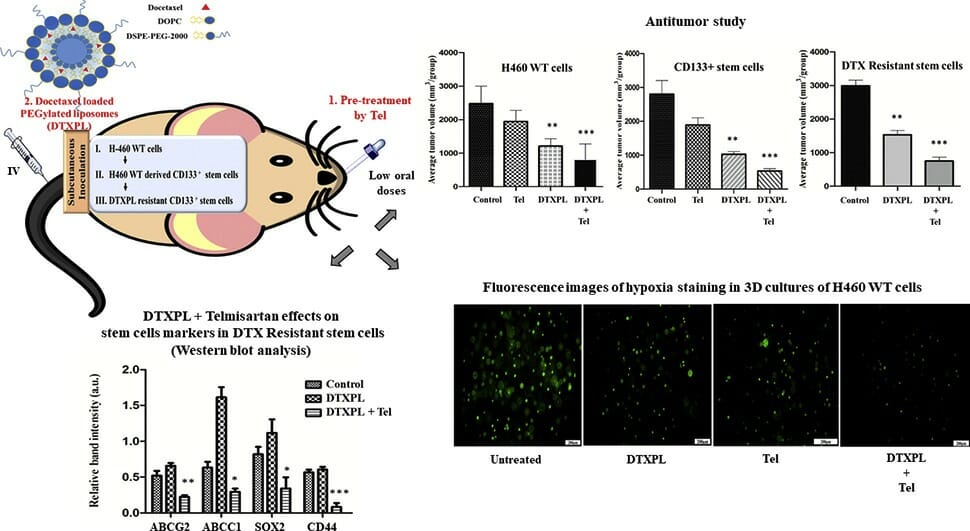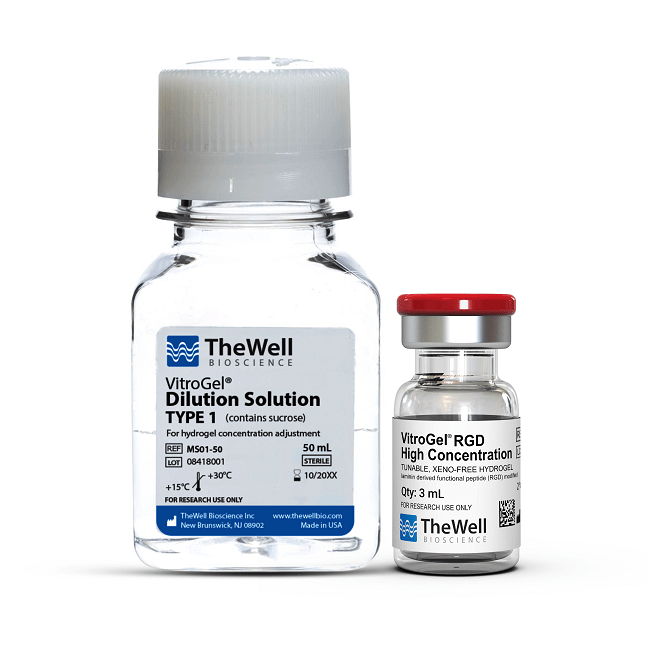Research Highlights
Penetrating Cancer Stem Cells For Lung Cancer Treatment
Scientists from Florida A&M University have discovered the ability of Tel and DXTPL combination system to increase the power of DXTPL to penetrate cancer stem cells and decrease the chances of cancer relapse and metastasis.

Institution:

Florida A&M University
Team:
Peggy Arthur, Nilkumar Patel, Sunil Kumar Surapaneni, Arindam Mondal, Aragaw Gebeyehu, Arvind Bagde, Shallu Kutlehria, Ebony Nottingham, Mandip Singh*
Application:
3D tissue model for drug screening
Disease model:
Lung Cancer, cancer stem cells
Cell types:
H460 WT (Small Cell Lung Cancer (NSCLC) cell line (H-460)), CD133+ H460 stem cells, Non
Hydrogel:
VitroGel® RGD (TWG003)
Lung cancer is the leading cause of cancer-related mortality worldwide. Despite the recent advances in cancer research, about 70% of the patients with lung cancer present with locally advanced or metastatic disease at the time of the diagnosis. Although chemotherapy has been utilized for treatment, it has proven to be ineffective due to increased resistance and poor uptake in cancer cells. Furthermore, the presence of dense collagen in solid tumors hinders the penetration of drugs or delivery systems into the tumor. These challenges cause relapse and propagation of cancers even after successive treatments. This primarily occurs due to the presence of chemoresistant cancer stem cells (CSCs) which are capable of self-renewal and differentiation. So far, the conventional chemotherapies are not capable of effectively targeting these cancer stem cells. Therefore, the need for a drug delivery system that has the potential to effectively target cancer cells and cancer stem cells is essential.
Liposomes are spherical vesicles composed of a phospholipid bilayer which have gained widespread clinical attention for about two decades now for their ability to serve as vehicles for the administration of pharmaceutical drugs. However, there are no liposomal formulations that are approved for treating chemoresistant tumors primarily due to the overexpression of efflux pumps (ATP-binding cassette (ABC) transporters) and the presence of dense collagen and fibrin networks in tumor cells.
Recently, Peggy Arthur and colleagues from Mandip Sachdeva’s group at Florida A&M University found that telmisartan (Tel) decreases interstitial tumor fibrosis and improves the intratumoral distribution of docetaxel, a chemotherapeutic agent used for lung cancer treatment. The role of Tel in increasing the intratumoral distribution of therapeutics and liposomes is well documented. Based on these findings, Peggy Arthur and colleagues have used Tel in their recent study assuming it has the ability to decrease collagen production and increasing penetration of docetaxel liposomes (DXTPL) into CSCs. Their study sought to target lung cancer stem cells using a combination of Tel and DXTPL in 3D cultures and tumor xenografts.
VitroGel® RGD from TheWell Bioscience was used to create a 3D microenvironment mimicking the in vivo tumor environment. It has been proven that 3D culture systems are more reflective of the in vivo cellular responses. 3D cultures confer this property due to the presence of cellular communication and the development of the extracellular matrix. In this study, scientists found that there was an eight-fold decrease in the IC50 value with a combination group of DTXPL and Tel when compared to DTXPL in 3D cultures. The Tel pretreated 3D cultures had increased uptake of Coumarin-6 liposomes compared to 2D cultures as per the liposome uptake study. The Tel- DXTPL combination therapy was also able to significantly decrease hypoxia in 3D cultures which resembles in-vivo tumor environment by disrupting tumor stroma and facilitating more DTXPL inside the 3D spheroids.
This study demonstrated the therapeutic benefit of using 3D cultures over 2D culture methods for in vitro evaluation of the anti-cancer effect of the combination therapy as well as investigating its efficacy in cancer stem cell animal model.
Read the publication:
Related Product:


